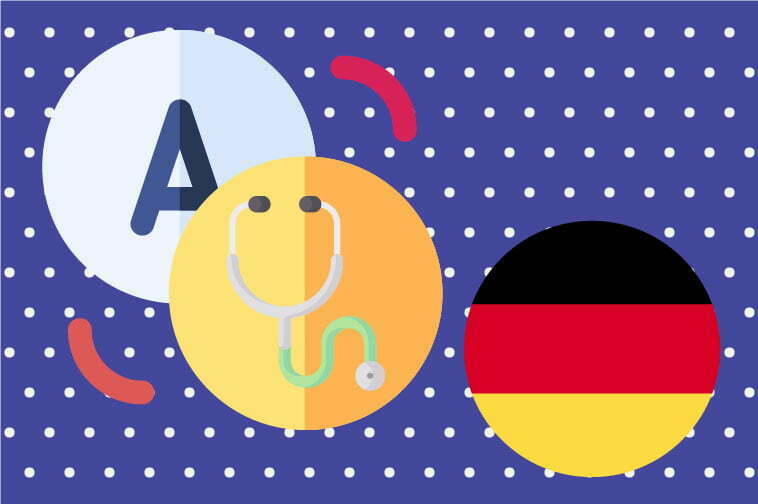German Medical Translation
German Medical Translation

Medical translation is a highly specialized field that demands deep linguistic accuracy and compliance with international regulatory standards. In the healthcare and pharmaceutical industries, precision is essential—critical medical information must be translated flawlessly to ensure patient safety and meet strict legal requirements across borders.
Every German medical translation must be performed by a professional with advanced knowledge of both language and medical science. From patient records and prescriptions to clinical trial documentation, accurate translation is not just a preference—it’s a necessity.
Why Accuracy in German Medical Translation Matters
Accurate medical translation ensures effective communication in clinical settings, supports research advancement, and guarantees safe pharmaceutical use. Mistakes can have life-threatening consequences, including incorrect diagnoses, inappropriate treatments, and compromised patient care. Legal liabilities and regulatory non-compliance can also arise from translation errors.
For medical manufacturers and pharmaceutical companies, improperly translated documentation—such as instructions for use (IFUs), package inserts, or clinical protocols—can result in delayed market approvals, reputational damage, or legal penalties. As global healthcare continues to expand, reliable German medical translations become essential for accessing and thriving in German-speaking markets.
The Importance of Regulatory Expertise and ISO-Certified Translation
In medical translation, regulatory compliance is non-negotiable. A professional German medical translator must understand not only complex terminology but also regional and international standards. Leading translation providers meet ISO 17100, ISO 9001, or ISO 13485 standards, which ensure consistency, confidentiality, and quality.
For sensitive documents such as patient records or clinical trial data, adherence to data privacy laws (e.g., GDPR, HIPAA) and translation industry certifications strengthens trust with stakeholders and regulatory bodies.
Medical Fields That Require German Translation Services
German medical translation is essential across a wide range of healthcare domains:
-
Pharmaceuticals
-
Medical Devices & Equipment
-
Dentistry
-
Diagnostics & Imaging
-
Bio-medicine & Life Sciences
-
Anesthesiology
-
Environmental Health
-
Clinical Research & Trials
Each field has unique terminology, context, and documentation requirements. That’s why medical translators must possess domain-specific knowledge to ensure both accuracy and appropriateness of language.
Quality Control in German Medical Translations
High-quality German medical translations require a rigorous multi-step quality control process. This includes:
-
Initial Translation
Conducted by a certified German medical translator with medical domain expertise. -
Independent Medical Review
A secondary expert validates terminology accuracy and checks for contextual consistency. -
Editing and Proofreading
Ensures the document is free from linguistic errors and adheres to readability standards. -
Final Quality Assurance Checks
Verifies compliance with international medical, linguistic, and legal standards before delivery.
This systematic process helps guarantee translations that are both medically sound and regulatory-compliant.
What to Look for in a Certified German Medical Translation Service
To ensure your content is properly translated, choose a provider that offers:
-
Certified medical translators with proven experience in clinical and pharmaceutical translation.
-
Data security and confidentiality policies, especially important when handling sensitive patient or research data.
-
Notarized or stamped certifications, when required for official or regulatory documentation.
-
Access to independent medical reviewers, to enhance subject-matter accuracy and legal defensibility.
Common Documents That Require German Medical Translation
Professionally translated documents include:
-
Patient medical histories and case notes
-
Clinical trial protocols and consent forms
-
Pharmaceutical product labels and inserts
-
Medical device user manuals and regulatory submissions
-
Healthcare insurance and policy documentation
-
Scientific research papers and white papers
German Medical Translation FAQs
Why is certified German medical translation important?
Certified translations are essential for regulatory submissions, clinical trials, and healthcare documentation. Only certified translations meet institutional and legal standards in hospitals, research bodies, and governmental agencies.
Who needs professional German medical translation services?
Healthcare providers, CROs, pharmaceutical companies, and device manufacturers all rely on professional translation for documentation, compliance, and international communication.
What makes German medical translation challenging?
German’s compound terminology, regulatory-specific phrasing, and contextual nuances require linguistic precision and deep subject-matter knowledge to avoid critical errors.
How do translators ensure regulatory compliance and accuracy?
Through a combination of ISO-certified processes, expert review, and rigorous quality assurance, medical translators deliver error-free, regulation-compliant translations.
© Copyright 2025 Globalization Partners International.
® All Trademarks are the property of their respective owners.
All graphics used in this report were provided by Flikr, Google Images and other free internet resources for pictures.